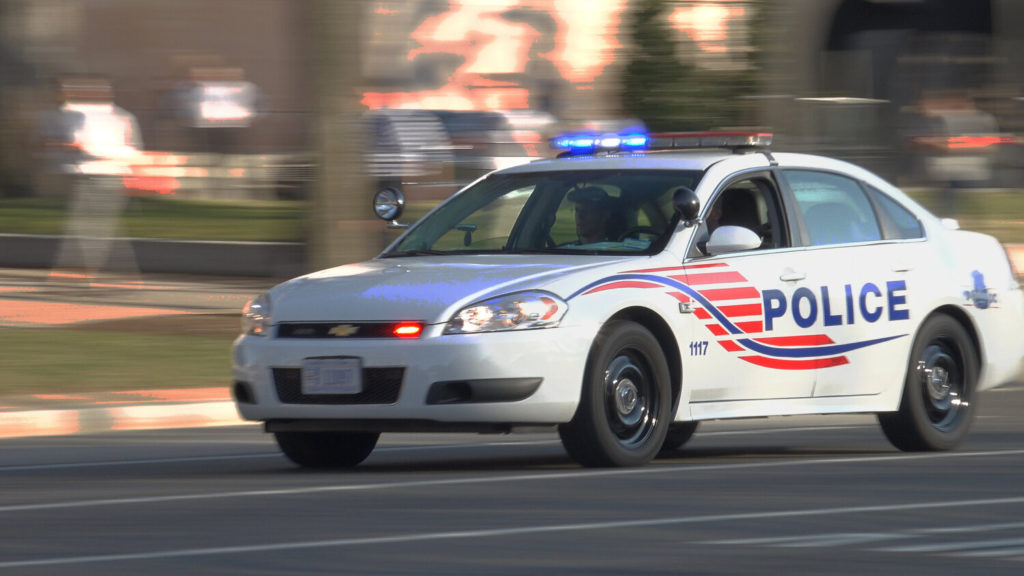Earlier this month, The Washington Post published “D.C. legalized marijuana, but one thing didn’t change: Almost everyone arrested on pot charges is Black,” a lengthy report that crunched cannabis arrest numbers in the District and spoke to some of those affected by those arrests, which are occurring after D.C. legalized cannabis, has a medicinal cannabis industry, and a “gray market” gifting industry as well. The information provided in the report is nothing new to Outlaw Report readers but it isn’t any less significant.
Arrests for cannabis have been reduced by half since legalization but, the Post writes, “African Americans still account for just under 90 percent of those arrested on all pot-related charges, according to a Washington Post analysis, even as they make up 45 percent of the city’s population.” 89 percent of 8,092 D.C. arrests for cannabis between 2012 and 2014 were Black People. Between 2015-2019—post-legalization —there were 3,631 cannabis arrests and 89% of those were Black. Between 2015-2019—the four years following cannabis legalization in D.C.—84 percent of those arrested for public consumption of cannabis in the District were Black. In total, there were a little more than 900 public consumption arrests.
Earlier this year, the American Civil Liberties Union (ACLU) released a massive report titled, “A Tale of Two Countries: Racially Targeted Arrests in the Era of Marijuana Reform,,” which crunched the data on cannabis arrests by race across the country over the past decade or so amid growing decriminalization and legalization. Washington D.C. was not included in the report (Florida wasn’t either). About a month after the ACLU’s report, Washington D.C.’s Metropolitan Police Department (MPD) quietly posted cannabis arrest data on its website though at the time they did not answer questions from The Outlaw Report about the timing of the data. “The data was published when it became available,” wrote Alaina Gertz, Public Affairs Specialist for MPD’s Office of Communications.
The Outlaw Report evaluated the arrest data posted and found that according to the data, in total (excluding juvenile arrests, which do not reveal race) there were around 11,700 cannabis-related charges between 2012-2019. Those arrests included possession with intent to distribute, possession, and even public consumption of cannabis. Of those approximate 11,700 arrested for a cannabis charge of some kind, around 10,500 were Black. Of those 11,700 arrestees, 709 were white. Of those arrests, 5,987 arrests for cannabis possession or public consumption arrests were Black while 451 were white.
Squaring up all of these numbers is confusing—it is often that data from police doesn’t seem to entirely line-up—but no matter which data set you look at and how, it shows that Black people continue to be disproportionately arrested for cannabis charges.
Baltimore arrest data for cannabis is similarly complex. At the end of 2018, I worked with the Baltimore Fishbowl to post a comprehensive evaluation of cannabis arrests in Baltimore which showed similarly racially disproportionate arrests for cannabis. Nearly 96% of the arrests for cannabis possession in Baltimore between the years of 2015, 2016, and 2017—the first three full years of cannabis decriminalization—were Black people. “During 2015, 2016 and 2017, Baltimore police arrested 1,448 adults and 66 juveniles for cannabis possession, according to Baltimore Police Department data supplied by the FBI. Of those arrestees, 1,450 were black. That’s 96 percent,” I wrote at the time. Baltimore is nearly 63% Black.
The Baltimore Police Department (BPD) refused to provide the race of the arrestees and would not reconcile slight discrepancies in their data and FBI data. BPD also falsely claimed that data of those given simple citations for cannabis would not show racially disproportionate policing but when we obtained that data it also showed racially disproportionate citations. Additionally, BPD later provided the Baltimore Sun with slightly different numbers than they provided me and refused to provide me with the data cited by the Sun (the Sun simply published the numbers provided to the Sun unquestioned, it turned out).
The responses from BPD reflected talking points the MPD provided to the Post: The number of arrestees are generally going down and there is no concerted effort to arrest Black people disproportionately for cannabis.
The data—no matter which numbers the police provide—does not bear that claim out.
Photo by backdc / via Shutterstock

